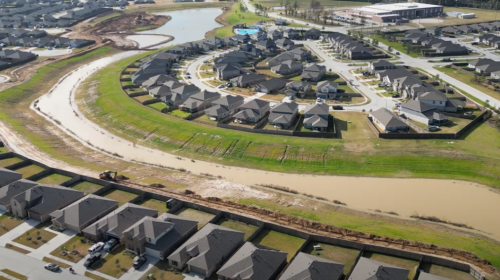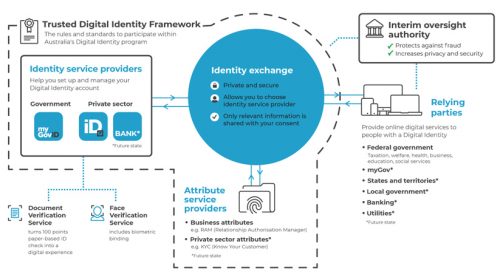“Over the years, special-purpose districts have become real estate developers’ way to finance new communities in Texas.”
“But only construction equipment moving dirt can be seen from the roadway where the registered addresses are said to be found.”
Union Park just one of the latest special districts in county
From Denton Record-Chronicle By Christian McPhate Staff Writer
Published: 10 November 2014 12:26 AM
Visions of this simple life have attracted thousands of people from across the Dallas-Fort Worth area to Denton County, a place known as horse country. But this attraction to small-town life is doing something country people would have never imagined: killing their way of life.
Today, the fields have been replaced with an ocean of rooftops lining what was once a lonely blacktop-road corridor of U.S. 380 east of Denton. The land that generations of Denton County residents nurtured and cultivated is disappearing, and suburban amenities such as supercenters, fast-food restaurants and mega gas stations have replaced farmland with residential communities known legally as special-purpose districts.
On Tuesday night, however, one voter in Precinct 1004 stopped the approval of $62 million in bonds and the levy of ad valorem taxes to pay them off. The money would have provided infrastructure for the Highway 380 Municipal Management District No. 1, a special-purpose district better known as Union Park.
The Denton County resident was one of two people who voted in the precinct.
“One person understood, and the other disagreed,” said Elaine Ford, vice president of Hillwood Communities, the developer of Union Park. “What we’re going to do is go to the board of directors and call another election in May.”
Since November 2006, eight people have registered to vote in Precinct 1004, claiming to live at three different addresses located on Navo Road. But only construction equipment moving dirt can be seen from the roadway where the registered addresses are said to be found.
“If you come in or mail in an application [for voter registration] and said, ‘I live at 123 Smith Drive,’ we don’t go out and physically check,” said Lannie Noble, elections administrator for Denton County.
Noble said there are 409,000 voters in Denton County, and the elections office doesn’t have the staff to check all the addresses, nor does the current election code require it.
“If the street exists, then it’s legitimate,” he said.
Noble said on Sept. 5, Coats Rose, a law firm that represents Union Park’s board of directors, sent the information about Highway 380 Municipal Management District No. 1 to be placed on the ballot.
Special-purpose districts
Over the years, special-purpose districts have become real estate developers’ way to finance new communities in Texas. They provide their own infrastructure and levy taxes. They can purchase, sell or lease real or personal property, sue and be sued, impose and collect taxes, issue bonds and borrow money, according to the state Senate’s website.
Section 52, Article III of the Texas Constitution authorizes the creation of certain special districts for limited purposes, and they’re governed either by the commissioners court of the county where they’re located or a board of directors appointed by the governing body creating the district or elected at-large.
In Texas, there are 253 special-purpose districts that impose sales and use taxes, according to the state comptroller’s website.
The most common type of special district is an independent school district, but the types being created now are water and wastewater districts and improvement and economic development districts.
To build a special-purpose district, developers normally need a city’s approval before the Legislature can approve a request to build in the city’s extraterritorial jurisdiction, where a city has some control outside of its boundaries.
If the city denies the developer’s request, the applicant — the landowner — could petition the city to extend its infrastructure. If that doesn’t work, the applicant could petition the Texas Commission on Environmental Quality.
A legislative-approved district grants the landowner the authority to build roads, but a TCEQ-approved district does not.
State Sen. Craig Estes, R-Wichita Falls, who represents part of Denton County, sponsored Senate Bill 1878 to create Highway 380 Municipal Management District No. 1 as a political subdivision of Texas, claiming that amending current law relating to its creation will provide the district authority to issue bonds and impose assessments, fees or taxes while prohibiting it from exercising the power of eminent domain.
Last year, Hugh Coleman, a Denton County commissioner, told the Denton Record-Chronicle that developers plan to add more special-purpose districts to the county. They could hem in a city and stunt its natural growth, he said.
“Cities feel like developers have a gun to their heads,” Coleman said. “So, basically, you have all these little cities that get trapped and unable to grow like they typically should because they have no choice.”
Union Park
Highway 380 Municipal Management District No. 1 is located off Navo Road north of U.S. 380. Its official name is Union Park, a 787-acre master-planned community “located in the ‘sweet spot’ of the Highway 380 corridor,” according to the developer’s website.
Union Park is one of the dozens of special purpose districts known as municipal utility districts, or MUDs, that have appeared in the extraterritorial jurisdictions of cities across the county since early 2000, , according to TCEQ records previously obtained by the Record-Chronicle.
These MUDs wedge their way into the extraterritorial jurisdictions of cities — an area set aside by the state to allow for cities’ growth — creating a patchwork effect much like an unfinished jigsaw puzzle.
But the jigsaw puzzle along the U.S. 380 Corridor is now connecting its pieces.
Ted Wilson, a Dallas-area housing analyst with Residential Strategies, told The Dallas Morning News in January that along the 380 Corridor, an area once rife with farming land, about 6,500 new homes have been sold since 2000.
Hillwood Communities, led by Dallas businessman Ross Perot Jr., is the developer bringing 2,400 single-family homes to Union Park, a new special-purpose district community. These energy-efficient homes will be built by American Legend Homes, Dress Homes, Emerald Homes, Highland Homes and Plantation Homes and will range in price from about $250,000 to $400,000.
Elaine Ford, vice president for Hillwood Communities, said phase 1 of Union Park will have 400 homes available next summer.
The special-purpose district falls under Little Elm’s extraterritorial jurisdiction, although many of the homes will have an Aubrey address because the development is located north of U.S. 380.
Some cities in Denton County may feel like they have little choice in the matter when special-purpose districts appear in their extraterritorial jurisdictions, while other communities such as Aubrey, Little Elm and Oak Point have been embracing their arrival.
Ron Whitehead, Aubrey’s interim city administrator, said the city is annexing two special-purpose districts: Jackson Ridge, a residential development offering 1,300 homes, and the Lakes of Regatta, a residential development offering 3,500 to 4,000 homes.
Whitehead said the problem with annexing special-purpose districts is finding a balance between rural ambience and suburban amenities.
“Obviously, it’s important to have some growth and provide what people want in the community,” Whitehead said. “We’re trying to promote that in an intelligent way.”
Like many other cities in Denton County, Aubrey’s comprehensive plan is the guidebook that residents have created and implemented to give future city leaders direction as far as developing the community.
The problem is that these comprehensive plans are constantly being amended by cities across North Texas as more and more developers push into the area.
Matt Mueller, the town manager for Little Elm, said his town has seen significant growth since 2000, when the population was around 3,000 people. Today, the community once known as a small lakeside town has grown to more than 32,000 residents, some of whom live in special-purpose districts annexed into Little Elm.
“Our community is pro-growth,” Mueller said. “Our comprehensive plan has our buildout at 90,000 [people]. I see us continuing to grow pretty rapidly.”
Part of this growth comes from annexation of special-purpose districts such as Union Park and Valencia on the Lake into the rapidly growing town.
People who live in special-purpose districts located outside of city limits aren’t allowed to vote in city elections, although their mailing address lists a city, Mueller said. They also have their own special-purpose district taxes to pay, in addition to county and school district taxes.
“A lot of people don’t realize that when they move into those districts, they don’t have the same public safety services, either,” Mueller said. “We try to work with the [special-purpose districts] coming into our area to get them services, both public and safety-related.”
If the special-purpose district is not annexed into the city, such services are contracted for residents. But Mueller noted that residents of districts that have been annexed — like Union Park — will not only receive city services but also be allowed to vote in Little Elm elections, despite having Aubrey addresses.
As for property owners paying special-purpose district taxes in addition to the town’s, the solution is still being determined.
“We’re working with those districts to keep their general assessments by having a reinvestment zone where the town would not get the full property tax rate,” Mueller said.
Recently, Little Elm acquired part of the extraterritorial jurisdiction of Lincoln Park, a small community — a mobile home park, really — located on U.S. 380 between Oak Point and Cross Roads.
Mueller said this acquisition will allow the town an opportunity to continue growing as it acquires more and more of the 380 Corridor.
Oak Point City Manager Luke Olson said this move by Little Elm puts his city in a land-locked position, although city leaders have been able to annex a few special-purpose districts such as Lakeview and Wildridge into city limits.
“But we would have liked to have grown some,” Olson said.
CHRISTIAN McPHATE can be reached at 940-566-6878 and on Twitter at @writerontheedge.










